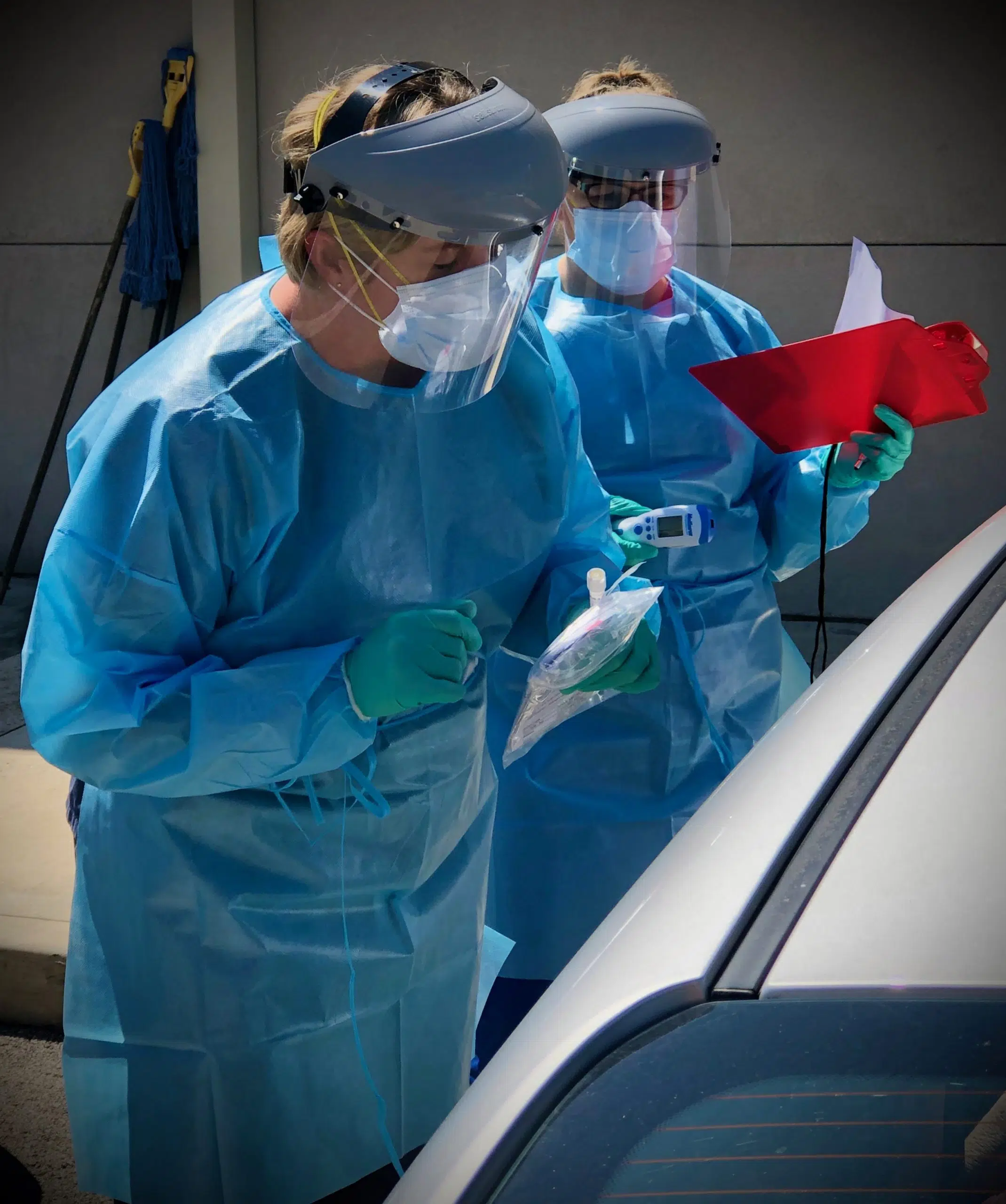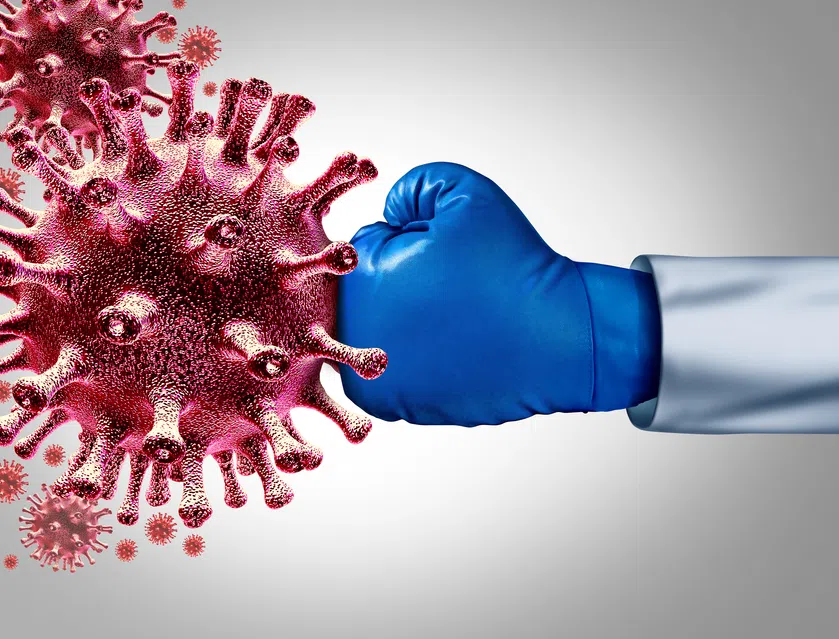(Seguin) — The local medical community is coming together to make sure that it provides the best care and treatment for patients during this COVID-19 pandemic. Approximately 25 local physicians conducted a cyber meeting this week. The group of doctors wanted to come together to make sure they were speaking with one voice when it came to engaging the public. They also wanted to be able to reassure the public that they were in good hands.
Dr. Linda Sullivan, DO, of Live Oak Family Health, says doctors here in the Seguin area have all been well prepared for this virus. She says most of them started making changes at their offices three weeks ago.
“We have been restructuring the whole way we do things. We are shifting as much of our schedule as possible to tele-medicine. Not everybody has the capability, but many of us do, and this is designed to help people stay home, especially our older patients that we don’t really want getting out. This is used mostly for follow-up appointments, going over labs (and) medication refills. Kind of, simple things that we can do over the phone or on a tele-visit,” said Dr. Sullivan.
The novel coronavirus that causes the COVID-19 illness can spread easily. Dr. Sullivan says that’s one of the reasons why they changed their approach to how and when they see patients in a clinical setting.
“Most of us try to keep folks out of our waiting rooms as much as possible, because sick people congregating is how this disease spreads. So they may see changes in protocols, (like) calling the office when you arrive and then being let in one at a time. Some people have shifted sick-visits to either the morning or the afternoon, trying to keep well-visits and sick-visits separate. Some of us are testing for COVID-19, and also for a variety of other common seasonal illnesses,” said Dr. Sullivan.
Dr. Sullivan says it’s important for patients to stay in contact with their doctor. She says if there’s a problem, then they want to know about it. She adds that it’s a way for them to make sure that their patients get the best and most appropriate care.
“One of our big concerns is that we don’t want the ER to become overwhelmed when we have a lot of sick people. So we are doing our best to be kind of a conduit. We want patients to come to us first. Call us. Reach out through their (patient) portals, and get information on what’s the best way to proceed if they are not acutely ill,” said Dr. Sullivan.
The doctors at the meeting all felt it was important to reach out to the community at this time. This is a critical time in the fight against the spread of the virus. Dr. Sullivan says they need the public’s help fighting this disease. She says the best thing that people can do right now is stay at home.
“I think the biggest message is the simplest message, and that is to really practice social distancing. I think that when it all comes down to it, we don’t have anything more powerful than staying home and keeping our distance from others right now. The disease is spread through droplets, meaning if you sneeze on someone or if you cough, but it’s also spread by contact — when you touch something that someone else has touched. That’s why it’s so critically important for people to stay home,” said Dr. Sullivan.
There’s no shelter in place order in Seguin or Guadalupe County, so people who feel well are still, in some cases, going on with their regular lives. Dr. Sullivan says it’s important to try to stay in, if you can. She says one of the many challenges with COVID-19 is that people can have the virus and not realize it.
“You can actually be infected with this disease and be completely symptom-free for up to 14 days. During that time, you’re still shedding the virus. I think there’s a lot of misconceptions about — ‘well, if I don’t feel bad, then I can go out and hang out with my friends, because I’m not sick.’ That’s not true with this one. It’s very highly contagious and easily spread even if among people who aren’t sick, or maybe who just think that they have allergies or something like that,” said Sullivan.
Dr. Sullivan says the medical community understands that people have to go out to get provisions and other essential items. While that may be a necessity, it may be time to try to better coordinate those shopping trips, so that we can further limit our exposure to others.
“One of the things that Italy has done is have a designated shopper for each family. Once a week, one family member goes to the store. Now, we are not at that point yet, but I think it makes sense to start thinking that way. So that we are not going back to the grocery store day after day,” said Dr. Sullivan.
There are lessons for all of us to learn during this outbreak. Dr. Sullivan says parents might want to use this extra time at home with their kids to teach them how to keep their hands clean. She says proper hand washing techniques can do a lot to help slow down the spread of this virus, as well as other illnesses.
“There’s all kinds of tutorials online about how to wash your hands. My favorite is singing Happy Birthday, and making sure that you’re getting each finger individually as you wash. It takes about 20 seconds of good hand washing to get your hands really clean with just soap and water,” said Dr. Sullivan.
The physicians during their meeting on Monday night wanted to stress to the community that if you’re not feeling well at this time, you need to see a doctor. They say it’s important that you let a medical professional determine what exactly is going on with your health.
“If you don’t have a doctor, they can call the main number at GRMC 830-379-2411 and they can refer you and give you a list of local doctors that are taking new patients. We want to be able to direct patients in the right way in order to really help this system stay afloat if folks start really getting sick in big numbers,” said Dr. Sullivan.
Dr. Sullivan says the doctors, the hospital and the rest of the medical community feel like they are well prepared to handle this crisis, but they need everyone to do their part.
In addition to the messaging from local doctors, the CDC has issued a full list of things that you should do to protect yourself from COVID-19:
– Wash your hands often with soap and water for at least 20 seconds especially after you have been in a public place, or after blowing your nose, coughing, or sneezing.
– If soap and water are not readily available, use a hand sanitizer that contains at least 60% alcohol. Cover all surfaces of your hands and rub them together until they feel dry.
– Avoid touching your eyes, nose, and mouth with unwashed hands.
Avoid close contact
– Avoid close contact with people who are sick
– Put distance between yourself and other people if COVID-19 is spreading in your community. This is especially important for people who are at higher risk of getting very sick.
– Take steps to protect others
Stay home if you’re sick
– Stay home if you are sick, except to get medical care. Learn what to do if you are sick.
– Cover coughs and sneezes
– Cover your mouth and nose with a tissue when you cough or sneeze or use the inside of your elbow.
– Throw used tissues in the trash.
– Immediately wash your hands with soap and water for at least 20 seconds. If soap and water are not readily available, clean your hands with a hand sanitizer that contains at least 60% alcohol.
Wear a facemask if you are sick
– If you are sick: You should wear a facemask when you are around other people (e.g., sharing a room or vehicle) and before you enter a healthcare provider’s office. If you are not able to wear a facemask (for example, because it causes trouble breathing), then you should do your best to cover your coughs and sneezes, and people who are caring for you should wear a facemask if they enter your room. Learn what to do if you are sick.
– If you are NOT sick: You do not need to wear a facemask unless you are caring for someone who is sick (and they are not able to wear a facemask). Facemasks may be in short supply and they should be saved for caregivers.
Clean and disinfect
– Clean and disinfect frequently touched surfaces daily. This includes tables, doorknobs, light switches, countertops, handles, desks, phones, keyboards, toilets, faucets, and sinks.
– If surfaces are dirty, clean them: Use detergent or soap and water prior to disinfection.






